HDD Low
Posted: December 26, 2010
Threat Metric
The following fields listed on the Threat Meter containing a specific value, are explained in detail below:
Threat Level: The threat level scale goes from 1 to 10 where 10 is the highest level of severity and 1 is the lowest level of severity. Each specific level is relative to the threat's consistent assessed behaviors collected from SpyHunter's risk assessment model.
Detection Count: The collective number of confirmed and suspected cases of a particular malware threat. The detection count is calculated from infected PCs retrieved from diagnostic and scan log reports generated by SpyHunter.
Volume Count: Similar to the detection count, the Volume Count is specifically based on the number of confirmed and suspected threats infecting systems on a daily basis. High volume counts usually represent a popular threat but may or may not have infected a large number of systems. High detection count threats could lay dormant and have a low volume count. Criteria for Volume Count is relative to a daily detection count.
Trend Path: The Trend Path, utilizing an up arrow, down arrow or equal symbol, represents the level of recent movement of a particular threat. Up arrows represent an increase, down arrows represent a decline and the equal symbol represent no change to a threat's recent movement.
% Impact (Last 7 Days): This demonstrates a 7-day period change in the frequency of a malware threat infecting PCs. The percentage impact correlates directly to the current Trend Path to determine a rise or decline in the percentage.
| Threat Level: | 10/10 |
|---|---|
| Infected PCs: | 159 |
| First Seen: | December 28, 2010 |
|---|---|
| Last Seen: | August 17, 2022 |
| OS(es) Affected: | Windows |
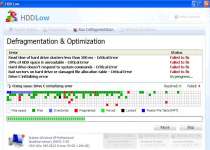 HDD Low (or HDDLow) is a fake PC optimization software considered to be malware and designed to lure unsuspecting PC users to purchase its full version. HDD Low is another version of Disk Repair, HDD Plus, Scanner, and many other bogus system optimizing tools circulating the Web.
HDD Low (or HDDLow) is a fake PC optimization software considered to be malware and designed to lure unsuspecting PC users to purchase its full version. HDD Low is another version of Disk Repair, HDD Plus, Scanner, and many other bogus system optimizing tools circulating the Web.
HDD Low uses shady tactics to catch its victims. HDD Low uses fake "critical" error messages that to a naive computer user may be utterly frightening; for example, "Data Safety Problem. System integrity is at risk." can drive a computer user to quickly fix the problem.
Every time a user tries to open a program, HDD Low will block the program from executing and deliver a fake error message. HDD Low is simply protecting itself from being removed by an anti-virus program and wants to render the computer useless so the computer user is left with no other option than to purchase the program. Computer users should not be alarmed or purchase the hazardous program HDD Low. HDD Low will also run system scans and point out all the errors it has supposedly detected. Even upon payment, HDD Low will not fix a user's computer problems. Do not fall into the hands of online fraudsters because of HDD Low and remove HDD Low with a realiable anti-malware program.
Use SpyHunter to Detect and Remove PC Threats
If you are concerned that malware or PC threats similar to HDD Low may have infected your computer, we recommend you start an in-depth system scan with SpyHunter. SpyHunter is an advanced malware protection and remediation application that offers subscribers a comprehensive method for protecting PCs from malware, in addition to providing one-on-one technical support service.
* See Free Trial offer below. EULA and Privacy/Cookie Policy.
Why can't I open any program including SpyHunter? You may have a malware file running in memory that kills any programs that you try to launch on your PC. Tip: Download SpyHunter from a clean computer, copy it to a USB thumb drive, DVD or CD, then install it on the infected PC and run SpyHunter's malware scanner.
Technical Details
File System Modifications
Tutorials: If you wish to learn how to remove malware components manually, you can read the tutorials on how to find malware, kill unwanted processes, remove malicious DLLs and delete other harmful files. Always be sure to back up your PC before making any changes.
The following files were created in the system:%TEMP%\edQMMNhhwg.exe
File name: edQMMNhhwg.exeSize: 449.02 KB (449024 bytes)
MD5: 5096de9347e2f2ce8434773317ad3e11
Detection count: 119
File type: Executable File
Mime Type: unknown/exe
Path: %TEMP%
Group: Malware file
Last Updated: January 3, 2011
%Temp%\HtmJDNvMU.exe
File name: HtmJDNvMU.exeSize: 397.82 KB (397824 bytes)
MD5: 01941c8a1f5d2e10cec2ee5fd8dab85a
Detection count: 10
File type: Executable File
Mime Type: unknown/exe
Path: %Temp%
Group: Malware file
Last Updated: August 17, 2022
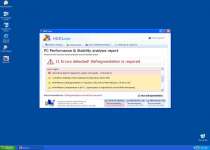
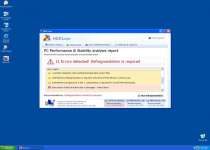
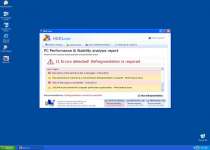
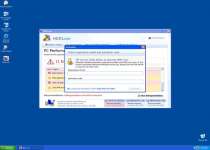
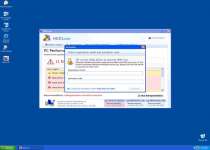

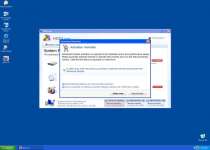
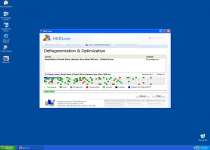
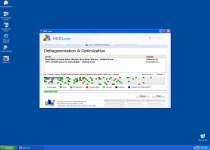
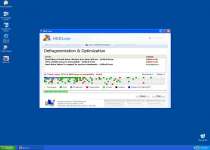
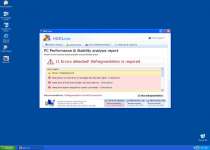
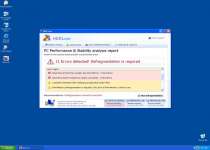
Leave a Reply
Please note that we are not able to assist with billing and support issues regarding SpyHunter or other products. If you're having issues with SpyHunter, please get in touch with SpyHunter customer support through your SpyHunter . If you have SpyHunter billing questions, we recommend you check the Billing FAQ. For general suggestions or feedback, contact us.